
FOR NEUROIMMUNE DISORDERS & MULTIPLE SCLEROSIS

4 WAYS TO Detox Your Glymphatic System
www.drchristineschaffner.com


PAGES 3-7
THE GLYMPHATIC SYSTEM IS THE KEY TO A HEALTHY BRAIN

PAGES 8-12
GABA AND BRAIN HYGIENE

PAGES13-17
THE IMPORTANCE OF SLEEP POSTURE OF YOUR BRAIN

PAGES18-20
THE ROLE INFECTIONS PLAY IN NEUROLOGICAL DISEASE

PAGES21-21
SUPPLEMENTS & BINDERS FOR YOUR BRAIN HYGIENE
About
Dr. Christine Schaffner
Growing up in a family of healthcare practitioners, after graduating from Bastyr as a board-certified Naturopathic Doctor, Dr. Christine Schaffner chose to make her mark in a powerful and unique way. Dr. Schaffner combines both naturopathic, functional, and conventional therapies to develop individualized treatment plans focusing on the underlying cause of complex chronic illness.
Patients who visit Dr. Schaffner, at any of the worldfamous clinics she helped create, have seen on average over 20 doctors and practitioners (and many upwards of 40 - 50). Her vast successes, which brings patients from around the world, as well as practitioners who come to learn her processes and protocols, are rooted in her specific (and ingenious) four-pronged approach to investigation and treatment, known as the EECO SystemTM. This addresses each individual’s unique health history, symptoms and triggers … creating a personalized blueprint to guide them to a strong and effective health journey, designed specifically for them.

— 2 —

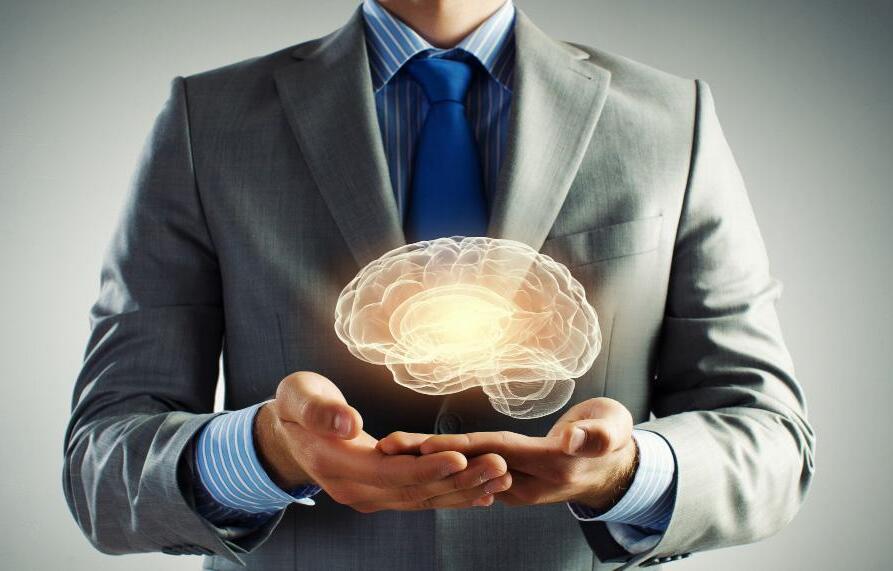
YOUR FIRST LINE OF DEFENSE
Sleeping Giant: The Glymphatic System
Your glymphatic system is an important waste clearance system for your body. Our brain uses this system to drain the toxins away while we sleep. Each night, during deep sleep, the brain shrinks and gets washed with cerebrospinal fluid, and this waste is carried through the glymphatic system and gets moved into the peripheral lymph.
While this is happening, the system is also bringing nutrients to neurons and removing toxicity out of the brain. This system is how our body keeps neurological degeneration and disease at bay, and is one of the most underappreciated but vital systems in our bodies. It is also a system that is delicate, easily injured and upset.
— 3 —

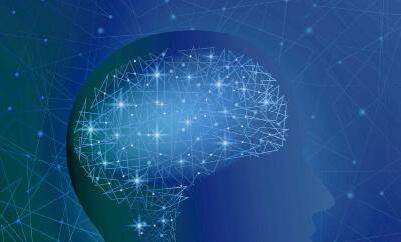
The best example of an injured glymphatic system comes from those who have had a traumatic brain injury. Well known examples include car crashes or professional athletes who have experienced multiple concussions. However, the day to day effects of our society has led to people with otherwise healthy functioning brains to suffer from injury to their glymphatic systems. Some of the modern-day culprits include improper sleeping habits and technology disrupting sleep patterns, which have a negative effect on our glymphatic system.
It is also important to support proper glymphatic drainage. The less congested the cervical lymph nodes and the entire lymphatic system the better able the glymphatic system will be to drain and protect the brain against environmental exposures. When your system is overloaded with toxins that are only building and not draining properly, the glymphatic system becomes compromised. There is only so much that can be done before the system is overwhelmed, and the toxins begin to attack your brain.
SO WHAT ARE SOME WAYS WE CAN HELP OUR GLYMPHATIC SYSTEM?
— 4 —


What are 3 ways to support this quiet sleeping giant which is so critical to keeping the brain healthy and vibrant?
Drink a glass of filtered water as soon as you wake up
Your brain shrinks over 60% every single night when you sleep. That’s more than just a shocking statistic, it is a fact that you can use as a tool. If your brain shrinks to help the glymphatic system move toxins out of your body, then you have to help the brain fill back up with healthy fluids. You can do this by drinking a glass of filtered water with electrolytes to promote hydration as soon as you wake up. We suggest the Berkey Water Filter which removes 200 unsafe contaminants. Before you get up to shower or start your day, before your daily distractions pull you in, stop and have a drink.
Not only will this be essentially vital to your glymphatic system and brain health, but you will also find yourself more awake and alert every day. One easy way to remember to drink water in the morning is to fill a glass or water bottle in the evening, and put it next to your bed before you go to sleep. When you wake up you can have instant access.
1
— 5 —


Exercise Daily
Previously it was thought that the glymphatic system was only effective at night during sleep and was the only way to flush toxins from the brain, but a new study shows that exercise can positively affect the function of the glymphatic system. In this study, they gave one group of mice access to a running wheel, and another group of mice had no access to exercise. After five weeks, the group of mice that had access to exercise showed a more than two-fold increase in glymphatic flow.
So whether it is yoga, walking, running, golf, tennis, Zumba or any other form of exercise, it can help to increase glymphatic flow and support brain health.
2 — 6 —


Hours of Sleep
Although exercising supports glymphatic flow, the glymphatic system doesn’t get activated until you are asleep. So great flow doesn’t help your brain UNLESS it is paired with sleep.
The recommended amount of sleep for an adult is 7 to 9 hours. Our brain needs to be in a state of deep sleep for our glymphatic system to work.
It may feel like we do nothing while we sleep, but our bodies are working in overdrive to heal and maintain function. When you don’t get enough sleep the glymphatic flow is interrupted and toxins and infections can accumulate in the brain and lead to neural degenerative diseases or other brain symptoms.
3
— 7 —

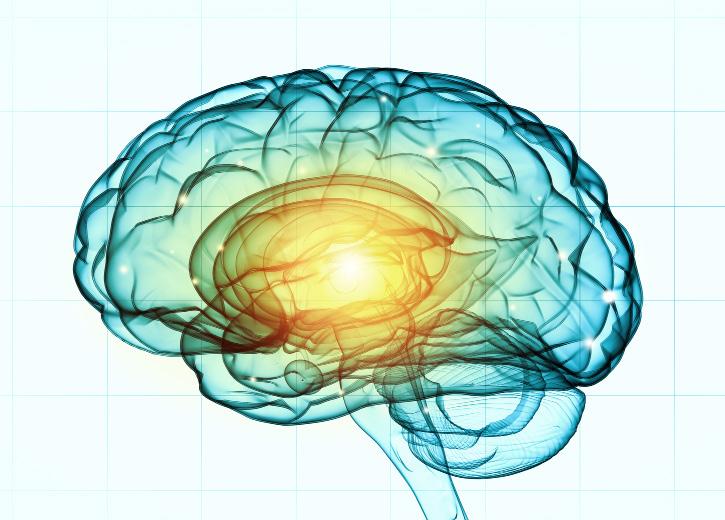
GABA and Brain Hygiene
Gamma-aminobutyric acid (GABA) is a naturally occurring amino acid that works as an inhibitory neurotransmitter in your brain. Neurotransmitters are molecules that your nervous system uses to transmit messages between neurons or from neurons to muscles.
GABA is considered inhibitory because it decreases activity in your nervous system, resulting in feelings of calm and relaxation. That’s why GABA is such a powerful supplement for those with anxiety, stress, panic, and sleep disorders —it puts the brakes on hyperactive brain activity, so you can actually rest.
So, even if you’re not one of the millions of people that suffer from chronic stress or insomnia, GABA is a wonderful addition to your brain hygiene protocol.
HERE’S WHY...
— 8 —


GABA is Essential for Brain Detox
GABA plays a crucial role in reducing stress and anxiety, aiding in an overall sense of calm, reducing pain, and promoting better sleep. It also plays a role in keeping your immune and endocrine systems balanced and controlling inflammation.
GABA is also responsible for regulating your memory and mood, but most importantly, it moves your body into a lower gear, allowing you to relax into a full night of rejuvenating sleep. In fact, GABA levels are about 30% lower in people with insomnia1.
And deep sleep and REM is critical for brain detox.
Your body produces GABA naturally, but chronic stress, nutrient deficiencies, and certain medical conditions may inhibit GABA production.
THE FOLLOWING CONDITIONS ARE ALL ASSOCIATED WITH LOWER LEVELS OF GABA:
• Insomnia and other sleep disorders
• Anxiety
• Panic disorder
• Depression and other mood disorders
• Chronic stress
• Muscle pain
• Headaches
• Substance abuse, particularly alcohol dependency and cravings
— 9 —


GABA Increases REM Sleep
There’s another reason GABA is so critical for brain hygiene. In one study, a single dose of GABA decreased sleep latency, increased sleep duration, and dramatically increased REM (rapid eye movement) sleep compared to the control group2.
REM is the sleep stage associated with learning, memory, and vivid dreams. This is a time when your brain exercises critical neural connections that are key to long-term mental health. REM sleep is associated with a brain-wide increase in cerebral blood volume, increasing cerebrospinal fluid, influx, and glymphatic system activity.
THE BENEFITS OF REM SLEEP INCLUDE:
• Better learning, memory, and mood
• Emotional recalibration, creativity, and problem solving
• The formation of associative networks and the integration of unassociated information for creative problem solving
TOO LITTLE REM SLEEP IS ASSOCIATED WITH:
• Increased inflammation
• Increased risk for obesity (due to raised leptin)
• Memory and cognitive impairment
• Sleep apnea, which can result in an increased risk for cardiovascular disease, diabetes, obesity, and mood disorders
• Unresolved trauma
• Decrease in learning, memory, creativity
• Decrease in brain detox
— 10 —

REM and Your Dreaming Brain
REM sleep is probably most famous for the stage of sleep where you experience the most memorable dreams. You can experience dreams during all sleep phases, but they tend to be the most vivid during the REM stage. But what do dreams have to do with brain health?
Dreams serve as space for your thoughts and memories to merge and interconnect, which helps you process emotions and solidify memories. Think of the dream space as a place where all of your conscious and subconscious emotions, motivations, and memories can play out on the big screen of your mind.
Dreaming allows your sleeping brain to enter an altered state of consciousness in which it can construct imagined narratives and respond to them emotionally.
This helps your mind recalibrate the areas of the brain that read and decode emotional signals and make you more emotionally resilient.
IN A NUTSHELL, DREAMING HAS BENEFITS LIKE:
• Emotional resilience
• Reduction in reactivity of the amygdala
• Problem solving
• Evolutionary function
• Better memory
• Increased creativity
Dream deprivation and REM sleep deprivation, on the other hand, is correlated with a lack of dreams, which can lead to lower emotional acuity.
There’s also some evidence that REM sleep shuts off the part of the brain that secretes norepinephrine, the neurotransmitter associated with stress. One theory, known as the REM calibration hypothesis, suggests that norepinephrine builds up during the day and is set to normal levels during REM sleep.
That results in the amygdala (your brain’s fear center) becoming less sensitive to stimuli and less likely to overreact. In fact, REM sleep is the only time during a 24-hour period when your brain is free from these anxiety-triggering compounds.
— 11 —

How to Get More GABA
While you can get small amounts of GABA from fermented foods like kimchi and miso, it’s not readily available from food. That’s why so many people choose to supplement. However, even supplementation comes with a caveat since you have the right form for optimal absorption and use.
GABA supplements are common and easy to get in capsule form from any health food store. But oral GABA supplementation simply isn’t effective for a couple of reasons.
GABA in pill form has to make its way through your entire digestive tract before it can make its way into your bloodstream. Not only does this take longer, but how much your body actually absorbs depends heavily on the health of your gut. By the time it makes it into your bloodstream, it’s highly unlikely it will make it across the blood-brain barrier, which is where GABA works its magic.
Topical GABA, however, can absorb through your skin and begin to make its way to the brain without having to battle your digestive tract. That’s why we made SOMNIUM NIGHTTIME GABA CREAM. Somnium doesn’t just utilize transdermal liposomal GABA, it also contains a bioactive chondroitin sulfate for optimal absorption.
Chondroitin sulfate is a compound used mostly for joint pain because of its incredible anti-inflammatory effects. It’s also known for effortlessly crossing the blood-brain barrier.
Individually, GABA and chondroitin sulfate each have powerful benefits. But, when you combine the two, GABA is absorbed at a faster rate than any other GABA cream on the market. And this isn’t just any chondroitin sulfate. Most chondroitin sulfate is made from animal cartilage and comes with about 10% heavy metal contamination from the extraction process.
Instead of settling for toxic byproducts, Dr. Schaffner and her team created a new type of chondroitin sulfate made from microbial fermentation. This led to a patented chondroitin sulfate that is 99% pure and 100% vegan.
Simply massage a pea-sized amount into your temples and the back of your ears before you go to bed for GABA that crosses the blood-brain barrier to help support deep, rejuvenating sleep, more vivid dreams, and well-rested mornings.
— 12 —


The Importance of Sleep Posture of Your Brain
In recent years, general awareness of the negative health impacts of sitting for extended periods of time has increased. Researchers have gone as far as to say that “sitting is the new smoking”. NASA scientist Dr. Joan Vernikos has shown that excessive sitting causes many of the same problems that astronauts experience in space due to the reduced force of gravity on the human body. The deficiency in gravity from sitting can cause physical degeneration of the spine, muscles, and connective tissue, as well as obesity and early death. Most people, however, are not aware that sleeping on a flat surface has the same negative impacts as sitting or weightlessness in outer space.
Research has shown that sleeping on a flat surface can cause reduced sleep quality, migraines, Alzheimer’s disease, glaucoma, sleep apnea, and strokes, among other diseases.
— 13 —


There is no real reason or logic behind why humans sleep on a flat surface. One day, someone decided to make a flat bed, and it must have caught on. Sleeping on a flat surface is not the norm in the animal kingdom. Most mammals will choose to sleep with their heads uphill if they can. Elk and deer, for instance, prefer to sleep with their head uphill.
Gravity inclined sleeping is exactly what it sounds like. Instead of sleeping on a flat surface, the bed is at a slight incline of 3.5 to 5 degrees. The main benefit behind inclined bed therapy is improved circulation of blood and lymph, simply by gravity. When you sleep, your brain detoxifies itself through the glymphatic system. Adding a five-degree incline to your sleeping surface can help the glymphatic system drain “downhill” to the gut to be excreted. This can help detoxify heavy metals, pathogens, and other harmful substances from the brain.

Beds
found in the tombs of ancient Egyptian royalty were almost always at a 5-degree incline. For instance, King Tutankhamen’s bed, what looks like a headboard is actually the feet end.
— 14 —

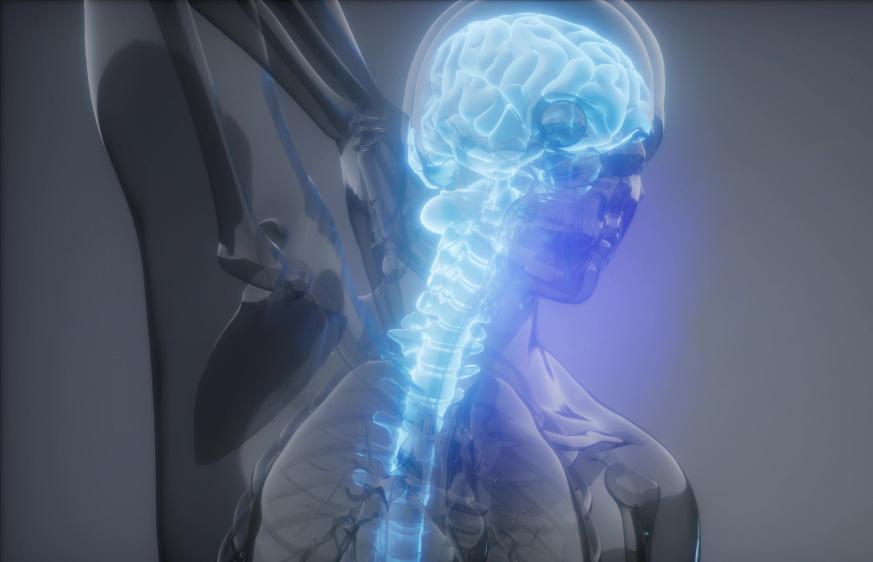
A CONDITION CALLED CHRONIC CEREBROSPINAL VENOUS INSUFFICIENCY (CCSVI) IS VERY COMMON IN CHRONIC DISEASE.
In CCSVI, the blood and lymph flow out of the brain is compromised, leading to neurological problems. It is well known that CCSVI symptoms worsen while lying flat.
Gravity inclined sleeping also has numerous benefits on the body structure. The slight incline is enough to restore the force of gravity on the body, straightening out the spine, as well as strengthening the muscles, fascia, ligaments, and tendons. Sleeping inclined can also help prevent degeneration of the spine and connective tissue associated with aging. In addition, it can help with poor postural conditions such as kyphosis, lordosis, and scoliosis, as well as reduce the symptoms of restless leg syndrome (RLS).
— 15 —


IN THE UNITED STATES AND OTHER WESTERNIZED COUNTRIES, THERE IS AN EPIDEMIC OF SLEEP-DISORDERED BREATHING.
Snoring and obstructive sleep apnea are major risk factors for about every disease due to a lack of oxygen during sleep. Sleeping on an incline helps to open the airway, alleviating snoring and restoring oxygen to the brain. The force of gravity from sleeping inclined also prevents acid reflux and heartburn.
Experimentation has shown that 3.5 to 5 degrees is the ideal incline for improved sleep. Folding just the head of the bed up with an adjustable bed frame will not work, the entire bed has to be on a slope. For a standard king or queen-sized bed, this comes out to adding roughly 6 inches of height to the head of the bed. Adding 3 inches of support to the middle of the bed frame may also be needed for stability. You can buy 6-inch risers online for about $20, or use books, bricks, or wood.
The force of gravity from sleeping inclined also prevents acid reflux and heartburn.
— 16 —

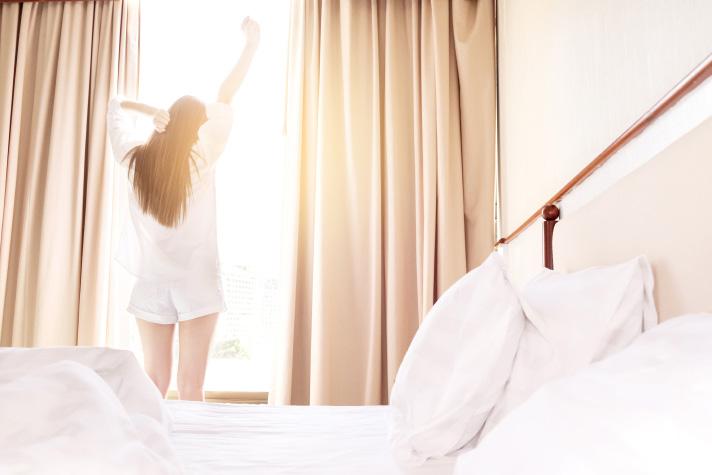
THERE IS ALSO A SMARTPHONE APP CALLED TILTMETER THAT CAN BE USED TO MEASURE THE INCLINE OF THE BED.
We also recommend to patients when possible to invest in a SAMINA inclined bed. It was created specifically to support proper sleep posture.
Sleeping on an incline can feel weird at first, although some people adjust with ease because it is only a modest incline. Some people may need to start with just a few inches and increase every week or two as they get used to it. Since it does increase detoxification from the brain, taking chlorella or another toxin binder before bed is recommended. It can take weeks of sleeping on an incline to start noticing improvements, with slow improvements over about 6 months. After the brief adjustment period, most people choose to never go back to sleeping flat again.
— 17 —


The Correlation Between Infections & Neurological Diseases
THE ROLE CHRONIC INFECTIONS PLAY IN BRAIN HEALTH
Chronic infections are infections that continue coming back. They can affect you multiple times, slipping past your immune responses to target specific portions of your brain over and over again. These infectious microbes secrete exotoxins and wastes that attack the vulnerable parts of the brain, causing neurological diseases such as Alzheimer’s and Dementia.
Chronic infections also help to contribute to autoimmunity. The buildup of toxins weakens your immune responses and causes gaps in the protection that your immune system is trying to provide. The cycle of infection and a weakened immune system is a deadly force that is hard to stop once it has begun. To prevent chronic infection, your first line of defense is to continuously build and reinforce your immune system, so it does not have a chance to weaken any more than it already has.
— 18 —

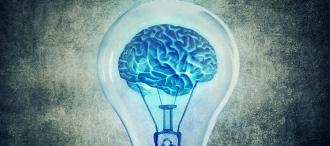
TOXINS BUILDING IN OUR BRAINS
Every single day we are exposed to a number of toxins in our daily environment. Every toxin that is in the environment will eventually be in our bodies. Neurotoxins are toxins that specifically target the nerves in our bodies. Once they reach their target they attack, and this is one of the biggest contributors to neurological disease.
Nerves are not just electric wires, they serve a number of vital purposes. One of these is axonal transport, a system that moves nutrients from the brain to the cells. The neurotoxins use this transport system to travel into cells and do major damage. Symptoms of neurological diseases, like brain fog and impaired memory, can start presenting almost immediately after the cells have been attacked by these toxins.
A few of the more prevalent toxins in our environment include wood preservatives, metals such as mercury, aluminum, and lead, petrochemicals, and pesticides. If that sounds like a lot, that’s because it is. These are just a few of the many toxins invading our bodies, and there is evidence that all of these toxins contribute to the deterioration of brain health in various ways. While there’s no way to completely avoid them, there are things you can do to support and protect your brain.
— 19 —






WHAT WE KNOW AND WHAT WE CAN DO

The most important thing to know is how your immune system responds to everything it interacts with. We are all exposed to various toxins and infections daily, but not all of them end up harming us. Each person is affected differently and not all of us end up developing the same neurological diseases. The difference is in each individual immune system response. The key is to build up the strength of your immune system and its ability to fight against infections. This is one of the most powerful ways you can prevent neurological diseases.
Each person is affected differently and not all of us end up developing the same neurological diseases.
Building up your immune system starts by ensuring your body’s glymphatic system is working properly and flushing out the harmful biotoxins that are secreting wastes into our brains.
— 20 —


Supplements and Binders to Support the Glymphatic System and Brain Health
When we’re talking about supplements to help you to increase your brain health, we want to focus on a couple of things.
THE MAIN FOUR ARE:
1. Blood flow
2. Lymph drainage
3. Pathogens
4. Brain detox
Blood flow and lymph drainage go hand in hand because, as mentioned earlier, your lymph and glymphatic systems use blood flow to drain toxins out of your brain and allow it to heal. Here are the top recommended supplements to assist in optimal blood flow, lymph drainage, and overall brain detox:
— 21 —


SOMNIUM NIGHTTIME GABA CREAM
Formulated by Dr. Schaffner and her team, Somnium GABA Cream is a transdermal liposomal GABA that’s formulated to safely and effectively cross the blood-brain barrier for:
• Better brain detox
• More vivid dreams
• Deeper, rejuvenating sleep
• More energetic mornings
• Relieve anxious thoughts
• Improving mood
• Reducing PMS
• And much more...
Simply massage a pea-sized amount into your temples and the back of your ears before you go to bed for GABA that crosses the blood-brain barrier to help support deep, rejuvenating sleep, more vivid dreams, and well-rested mornings.
— 22 —

BRAIN TINCTURE
Our Brain Tincture consists of herbs that increase blood flow in your brain including ginkgo, rosemary, and bacopa. These herbs not only help with your memory and recall, but the bacopa also helps nourish your adrenal system. When your adrenals are struggling, your sleepwake cycle and stress response are affected, both of which affect brain detox.
BAIKALIN POWDER
Your brain is made up of over 86 billion neurons, constantly firing messages back and forth. Production of neurons is a vital part of keeping your brain in top shape, and Baikalin Powder is known to increase the production of neurons.
Increased production of neurons means not only that the messages in your brain are moving faster than before, but also that the toxins are being flushed out of your system more efficiently.
BIOSIL AND ZEOBIND
Heavy metal and toxin buildup is a huge problem when it comes to brain health. In fact, many conditions we’ve been taught to think of as a normal part of aging (like brain fog and age-related brain degeneration) may be due to your body’s accumulation of heavy metals and other toxins.
Aluminium, in particular, is one of the main reasons our brains are in trouble. For instance, there is a statistically more significant amount of aluminum in the brains of dementia patients and children with autism. Biosil contains active silicon, which isn’t just good for hair, nails, skin, and connective tissue, it’s also useful for aluminum detox.
Zeobind is also recommended and contains a highly concentrated form of silica to help bind and excrete aluminum from the body.
— 23 —

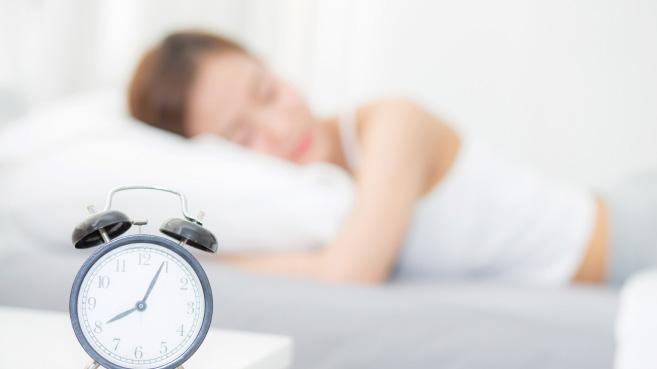
MELATONIN
Melatonin is another critical hormone that not only regulates the sleep-wake cycle but new research also confirms is critical for brain health. Melatonin is neuroprotective, helping to clear the brain of environmental stressors and pathogens. Melatonin production can decrease with age, or because of stressors, hormonal imbalance, and other detrimental lifestyle habits, leaving many people melatonin deficient.
We suggest liposomal melatonin, but there are multiple delivery options including creams and suppositories. Melatonin can be used at night and most often helps people sleep. If you find you have a melatonin “hangover,” which often feels like waking up tired and groggy, it may not be the melatonin, but the mobilization of toxins out of your brain.
If this occurs, it is essential to work with your practitioner to help support your body. At Immanence Health, we sometimes pair melatonin with more binders or chelators to mitigate symptoms. But why are our brains so low in melatonin? The pineal gland is where melatonin is produced and it is being affected by so many things in our modern world, including fluoride, aluminum, and EMFs. To help detox further, check out our last supplement recommendation.
— 24 —


PINEAL CODE
Pineal code from Physica is a drainage remedy that helps strengthen your pineal gland by releasing toxic buildup. Your pineal gland isn’t just critical for melatonin production, it also plays a role in regulating reproduction, executive function, body temperature, blood pressure, mood, appetite, and more!
Though these key supplements are important for toxicant elimination and brain health, it is important to first and foremost avoid or lessen your toxic load and stressors whenever you can. If you lower the amount of exposure, you lower the amount of toxins your brain has to fight. We always recommend to patients natural ways to protect and support your pineal gland and produce melatonin for proper sleep hygiene. This includes blue blocking glasses and creating a safe sleep environment free from EMFs.
CLICK HERE TO SHOP
BRAIN HYGIENE SUPPORTIVE SUPPLEMENTS
— 25 —

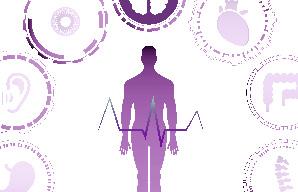
DR. CHRISTINE SCHAFFNER
1) Insomnia, page 9: https://www.ncbi.nlm.nih.gov/pmc/articles/PMC3353043/ 2) Control group, page 10: https://www.ncbi.nlm.nih.gov/pmc/articles/PMC6366437/
www.drchristineschaffner.com
HEAL IMMANENCE HEALTH LEARN
LISTEN SPECTRUM OF HEALTH PODCAST
SHOP IPOTHECARY





































